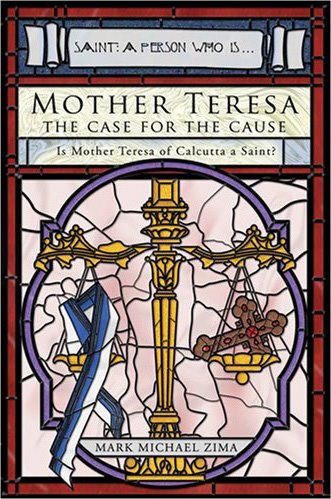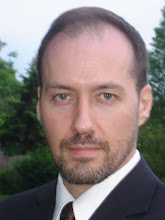
By Lucinda Schmidt
February 18, 2009
Faith and science mix for a woman who has been a nun with Mother Teresa, an author and a doctor.
At the age of 18, Collette Livermore's life took an 11-year detour. Instead of studying medicine, as planned, she decided she could better help those who most needed it by becoming a nun.
"I really felt that life is such a lottery, and I wanted to respond to the poor," says Livermore, now 54. "And I suddenly had this crazy idea."
That idea sprang from several things that happened during her final year of high school, in 1972.
Her mother almost died during an operation and told her daughter of her out-of-body experience, looking down on the medical staff trying to revive her. Livermore also was affected deeply by television reports of the Biafra famine and her convent school screened the film Something Beautiful For God, about Mother Teresa.
So she joined up as a novice in Mother Teresa's Missionaries of Charity, working in Melbourne, where she took her first vows in 1975 as Sister Tobit.
Even in those early days, Livermore began to have doubts that the strict Catholic religious order - which demanded subservience above all else - was the right place for her.
She found a homeless man lying dead, started CPR then called police and an ambulance, waiting with his body until they arrived. When she returned to the nun's home, she had strips torn off her for being late.
"If you were corrected like that, you had to keep quiet or say thank you sister, yes sister," Livermore says. "There was a big emphasis on being humble and accepting, and no emphasis on being courteous to each other or having a bit of flexibility."
In postings to Papua New Guinea, Manila, Calcutta and Hong Kong, she continued to get into trouble for not adhering strictly to the rules. In Manila, for example, parents arrived at the nuns' hospice with a very ill child on a "day of recollection", when no one was supposed to be admitted.
Livermore admitted the child, who lived, then wrote to the Mother House in Calcutta to explain why she had done so. The response was that her hands should have been tied by obedience, like having to watch Jesus die on the cross.
Another problem was the lack of even basic medical training. In Manila, the nuns were sent out to help those who lived in a slum at the foot of a smoking garbage mountain.
"We were doing the sort of work I wanted to do - that was the place I felt most at home," Livermore says. But she had no idea how to treat the tuberculosis afflicting many of the slum-dwellers.
Livermore tried to leave the order in 1981, just before she took her final vows, but Mother Teresa told her the devil was trying to destroy her vocation. Livermore was ordered to hit herself with a discipline (a knotted rope) and do more prayer and penance, wearing a chain around her waist.
"I'm not bagging Mother Teresa - I think she was very courageous - but I think the spirituality she was guided by was from the 1930s," Livermore says. "The paradox was that absolute obedience could lead you away from compassion. She thought suffering was a power for the good, that you could use humiliation as some sort of religious tool."
Livermore finally left in 1984 and followed her first calling, to become a doctor. She now works as a general practitioner in Gosford, NSW.
Her impetus to write Hope Endures came with Mother Teresa's beatification in 2003. She also lost all belief in God after the 2004 Asian Tsunami.
"I'm not a Pollyanna; I'm an ordinary person trying to do what I can to make life bearable for others."
THE BIG QUESTIONS
Biggest break Getting into medicine at the University of Queensland in 1985. I accidentally applied in the wrong stream as an undergraduate. All the other mature-age students had other degrees already.
Biggest achievement Graduating in medicine. I hadn't studied in 13 years, and had no intellectual input during that time.
Biggest regret Not having children or a lifelong partner.
Best investment My medical degree. It opens up so much opportunity - you can work almost anywhere - and it is a very satisfying job.
Worst investment When I went to Timor, I sold my house [in Katherine, NT]. I was going to put the money in a term deposit but a financial planner convinced me to put it in a managed fund. While I was away it lost about $15,000 - I was living on a $200 a month allowance [as an aid doctor].
Attitude to money It's a valuable tool, it can help you do things, open horizons, give you opportunities. As long as the tool is not in charge.
Personal philosophy To your own self be true and you won't betray anyone.
Hope Endures, by Collette Livermore (Random House), $34.95.
My Comment:
I have many thoughts about the article but I found particularly interesting this comment, “Her impetus to write Hope Endures came with Mother Teresa's beatification in 2003.” Interesting enough, Mother Teresa's beatification in 2003 forced me to write my book. I hoped Rome would just ignore her cause; I never thought Rome could be that stupid. I hope she sent her book to the Congregation for the Causes of Saints.
The very next sentence in the paragraph is why Livermore needs our prayers, “She also lost all belief in God after the 2004 Asian Tsunami.” That is what happens when you’re about social work but not the work of God. That is what happens when you don’t believe in a sovereign God. That is what happens when you do believe that people are naturally good—and not naturally evil. And, that is what happens when you have bad formation and bad spiritual direction.



No comments:
Post a Comment